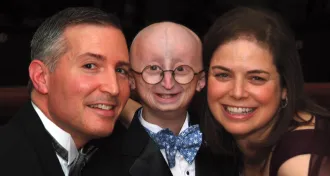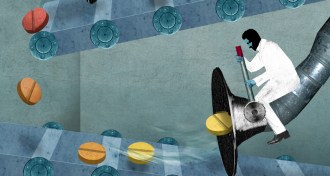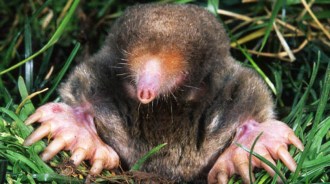Life
Sign up for our newsletter
We summarize the week's scientific breakthroughs every Thursday.
-
 Life
LifeMelting Arctic may make algae flourish
More sunlight penetrates thinning Arctic sea ice, enabling algal growth.
By Erin Wayman -
 Life
LifeAntianxiety drugs affect fish, too
Perch swim more and eat faster when exposed to concentrations of an antianxiety medication found in rivers.
By Erin Wayman -
 Life
LifeDiversity breeds disease resistance in frogs
Species-rich amphibian communities prove better at fending off limb-deforming parasitic infections.
-
 Chemistry
ChemistryBitter and sour taste detectors also say, ‘too salty’
Mice that can’t sense the two tastes find high sodium attractive.
-
 Animals
AnimalsSea slug carries disposable penis, plus spares
A hermaphroditic gastropod sheds its penis after one use, then uncoils another.
By Susan Milius -
 Humans
HumansIn research, it matters whether you’re a man or a mouse
A study that compares trauma responses of mice with those in people questions the relevance of mouse research to human disease.
-
 Life
LifeAncestors of today’s placental mammals may never have shared the Earth with dinosaurs
A newly constructed family tree dovetails with the fossil record, but differs considerably from previous genetic studies by suggesting that placental mammals emerged after the dinosaur extinction.
By Erin Wayman -
 Animals
AnimalsCompared with rodents, bat species carry more viruses
Viruses that can jump from animals to people may find the flying mammals a fine place to lurk.
By Susan Milius -

-
 Life
LifeInflammation feeds E. coli
Inflammation, normally a defense against microbes, may become counterproductive in the gut by feeding disease-causing bacteria.
-
 Science & Society
Science & SocietyNo New Meds
With drug firms in retreat, the pipeline for new psychiatric medications dries up.
-
 Animals
AnimalsMole sniffs the world in stereo
Nostrils of the common mole recognize slight differences in smells to steer it toward its food.